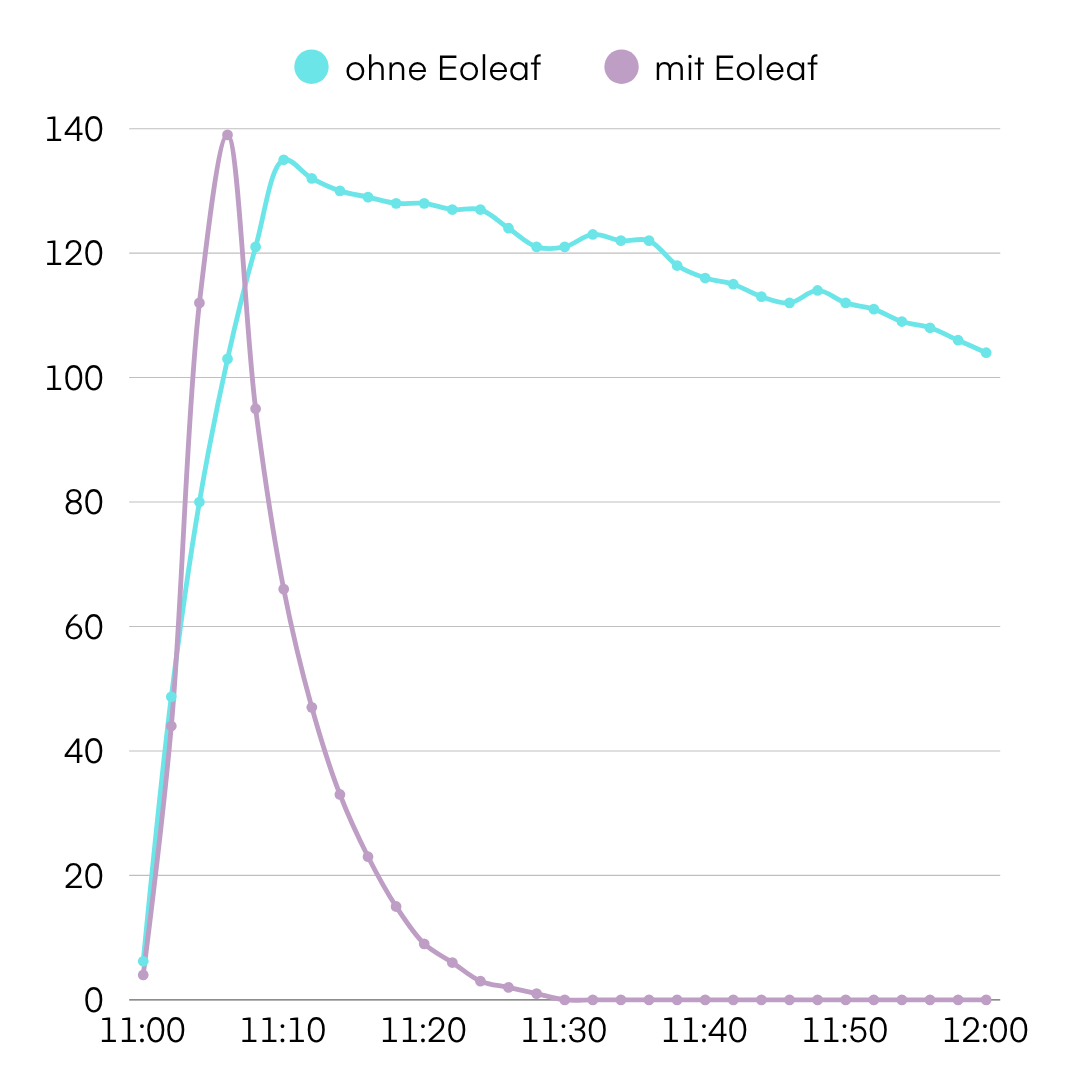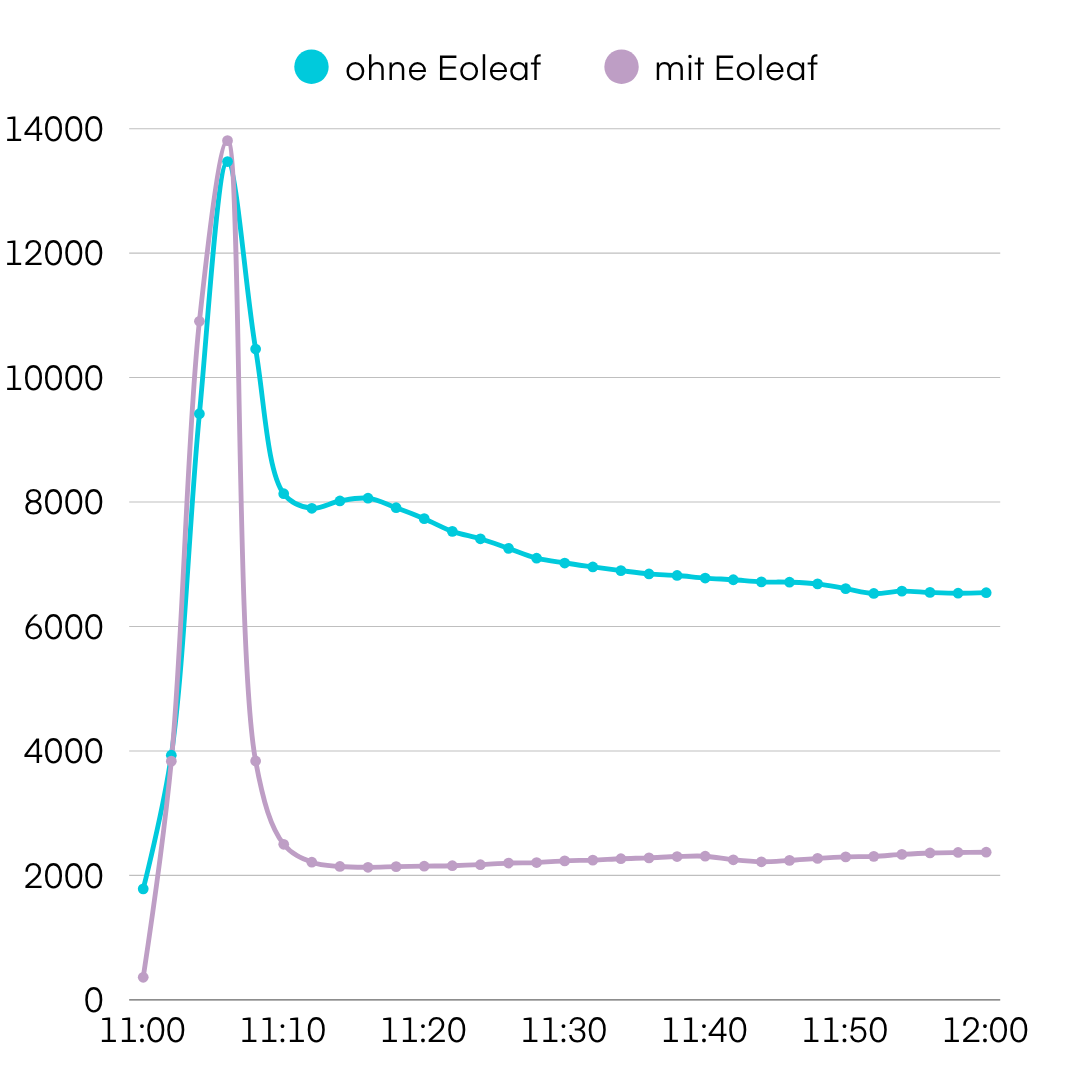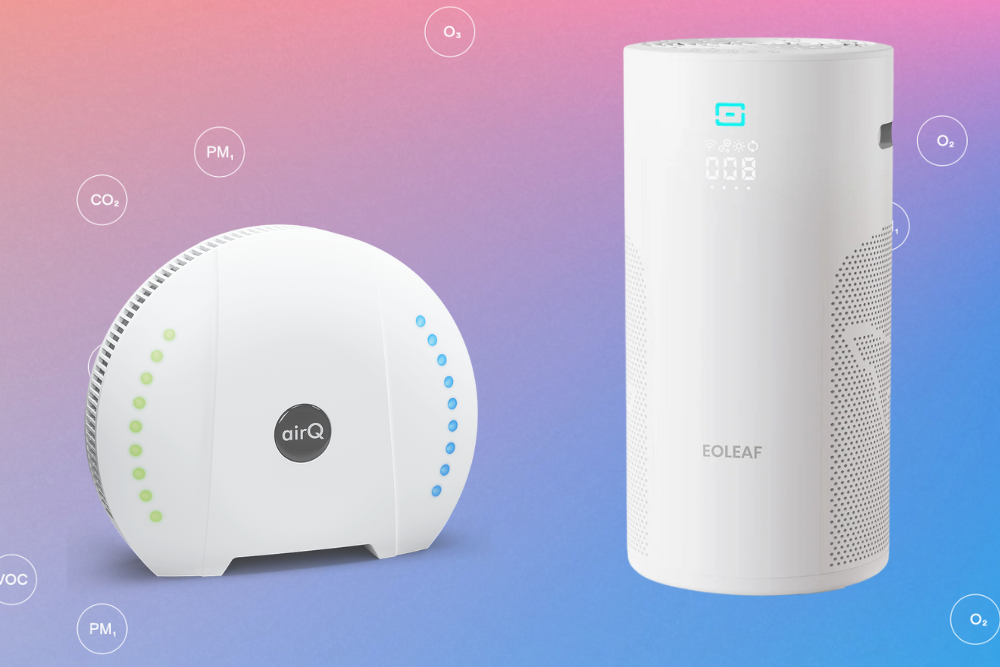The NeoPur 400 in the air test
The air we breathe indoors is often more polluted than we think. Cooking, candles, cleaning products or simply the indoor air itself can release pollutants that affect our well-being. Air purifiers promise a remedy here. But how well do they really work? In our latest test, we checked how effectively the NeoPur 400 from Eoleaf can remove various pollutants from the air.
The test devices
The air-Q Pro is a high-precision measuring device with up to 14 sensors that records particulates (PM1, PM2.5, PM10), VOCs, CO₂, temperature, humidity and other pollutants in real time. With the help of the air-Q Pro, we were able to precisely document the changes in air quality during and after the burning of the incense candle and track the effect of the air purifier.
The tested NeoPur 400 air purifier from Eoleaf is designed for rooms up to 40 m² and combines a HEPA H13 filter, an activated carbon filter, UV-C light and an ionizer to effectively remove particulates, allergens, smoke, VOCs, odours and other pollutants from the air.
%20(300%20x%20250%20px)%20(1500%20x%201300%20px).jpg)
Test setup
Our test was carried out in two phases. In both phases, the initial conditions were identical: the air in a small room of around 10 square meters was polluted using an incense candle. This candle burned for 5 minutes in both test set-ups. During the entire test phase, the existing air conditions were measured and recorded by an air-Q Pro.
No countermeasures were taken in the first test phase. In the second test phase, the polluted air was to be cleaned by the NeoPur 400 air purifier from Eoleaf. This allowed us to see how quickly the air returned to a normal state without further measures, thus enabling a better comparison.
Expected changes in air quality
particulates (PM2.5)
With particulates values were expected to rise sharply immediately after lighting the candle, as the flame produces many fine particles. Thanks to the HEPA H13 filter of the NeoPur 400, the particulates should be significantly reduced within ten to twenty minutes. PM2.5 will decrease exponentially as the air is recirculated through the filter several times until almost the initial level is reached.
VOCs
In terms of VOCs, we expected the fumigant to release volatile organic compounds, some of which are deposited on surfaces and gradually escape back into the air. The activated carbon filter of the NeoPur 400 should reduce the VOCs.
Test results
particulates (PM2.5)
The measured values clearly confirm the expectations. Without an air purifier, the particulates rose to a maximum value of 135 µg/m³ immediately after the candle was extinguished and then only fell slowly. Only 14 hours later were the values below 10 µg/m³. With the air purifier switched on, the particulates rose to a similar peak of around 139 µg/m³. Immediately after activating the device, the particle concentration dropped drastically. After just 12 minutes, the values were below 10 µg/m³, and shortly afterwards they even reached 0 µg/m³, which confirms the high efficiency of the HEPA H13 filter.

VOCs
The VOC values rose to over 13,000 ppb during the burning of the candle. After the candle was extinguished, they fell slowly and stabilized at around 6,000 ppb after around 3 hours, before the values were reduced to below 100 ppb by airing the room. In the test phase with the air purifier switched on, the VOC concentration fell from over 14,000 ppb to 2,212 ppb within 8 minutes. The VOC values remain at around 2,000 ppb despite the air purifier, as this is the basic level in the room. Many VOCs adhere to surfaces or are only partially captured by the filter. Ventilation then led to a further reduction to below 100 ppb.
The test shows that the NeoPur 400 can reduce VOCs significantly and relatively quickly under the conditions tested.

Conclusion
In our test, the NeoPur 400 proved to be an extremely effective air purifier. The reduction of particulates in particular was very effective. The test environment was deliberately kept small in order to better control the general conditions and to be able to observe the effects in isolation. However, the cleaning effect, particularly in the case of particulates, was so strong that it can be assumed that similar effects can also be achieved in larger rooms.
To permanently optimize indoor air quality, it is crucial to continuously monitor the air. The air-Q offers precise real-time measurement of pollutants such as VOCs, CO₂ and particulates. With up to 14 integrated sensors, it provides detailed data on air composition and enables targeted control of ventilation measures. Through integration into smart home systems, the air-Q can automatically respond to changes in air quality and make appropriate adjustments.
This not only supports health and well-being, but also contributes to energy efficiency. Continuously monitoring the air quality with such a device is therefore an important step towards improving the air in the long term and identifying potential health risks at an early stage.
In this video, the results were illustrated once again and the experimental setup was shown:













